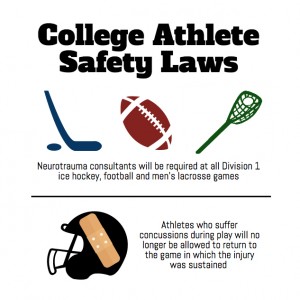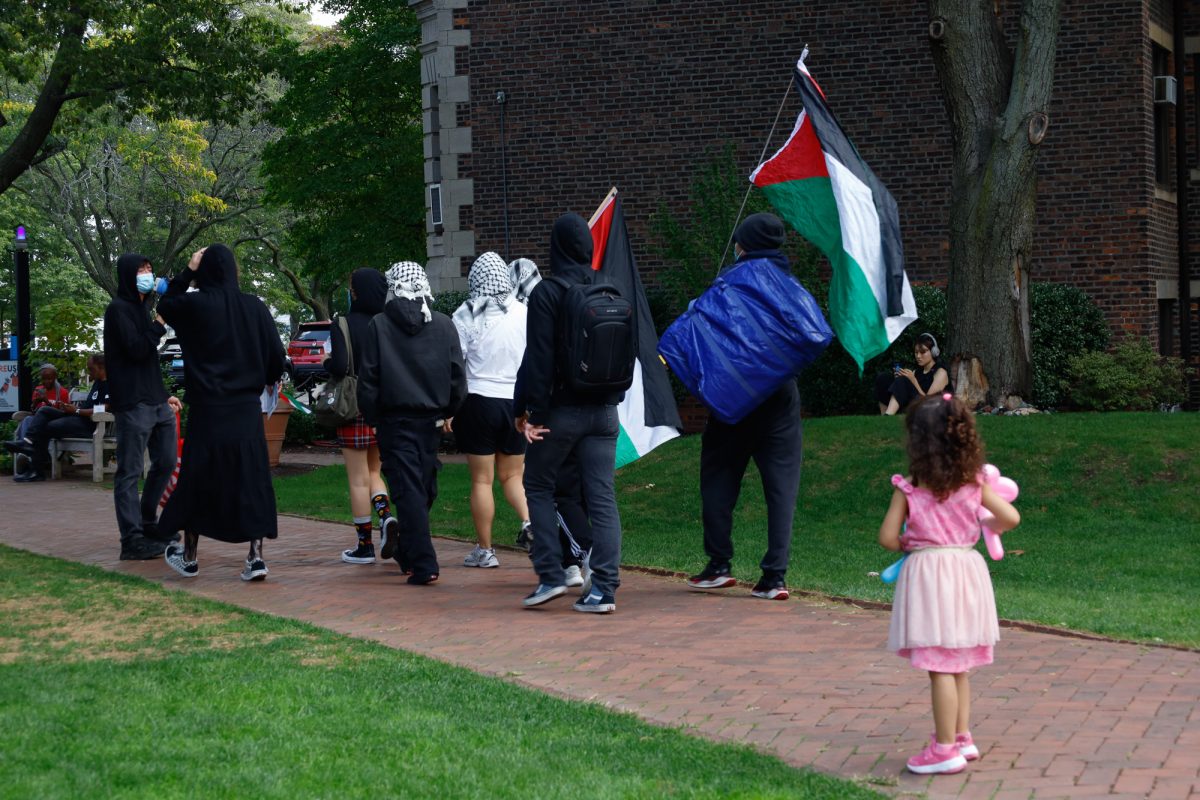
Boston City Council approved a citywide ordinance Wednesday that will impose stricter regulations on college athletes, launched to prevent head, neck and spinal injuries.
The ordinance will require NCAA programs to create emergency medical action plans and prohibit collegiate athletes from playing while concussed. The updated regulations also mandate neurotrama consultants to accompany Division I football ice hockey and men’s lacrosse teams.
City Councilor Josh Zakim, who represents Back Bay and Fenway, has been working on the ordinance since May.
“We have many people living in our district from Boston University, Northeastern [University] and other schools in our area,” said Kyndal Henicke, Zakim’s deputy chief of staff. “Once the hole in protection came to light, we saw the opportunity for Boston to be a leader on this.”
While the ordinance was put into effect immediately, the sections pertaining specifically to D1 lacrosse, football and ice hockey will not take effect until July 1, 2015.
The Boston Public Health Commission will enforce guidance provided by neurotrauma consultants and other stipulations required in the ordinance, establishing further regulations if necessary, said McKenzie Ridings, spokeswoman for BPHC.
Henicke said most, if not all, of Boston’s schools have actively contributed to creating the ordinance, which has made the process collaborative.
“There was actually a working session from representatives from several schools,” she said. “Most of the schools were open to this discussion, open to putting their students first. It was a culmination of the collaborative process.”
The ordinance is an effort made by the city to be proactive, rather than reactive, Henicke said.
“We saw the opportunity for Boston to be a leader on this,” she said. “We care about everyone in Boston, [and] our district has many young people, especially college students.”
Several residents and students said taking these preventative measures would keep college athletes safer, though they will not eliminate the danger involved in athletics altogether.
2009 College of Arts and Sciences graduate Kyle Ward, 27, of South Boston, said though most sports are dangerous, the government should not regulate college athletics.
“I don’t like the fact that the city is getting involved and making things mandatory, especially because BU is a private institution,” he said. “BU honors its athletes and pays a lot of money to have them play here. It’s smart that there’s more supervision, but having neurotrauma consultants there when there are already medical experts there, they’re just going to get in the way.”
Richard Watkins, a junior in Sargent College of Health and Rehabilitation Sciences, said he supported heightened protective measures for college athletes.
“It’s important to have an independent arbitrator to decide to take people out of the game,” he said. “BU coaches and officials wind up deferring to the player too often.”
Monique Okallo, 34, of Back Bay, a former Harvard physician, said student athletes who experience head trauma are likely to suffer lasting damage, and she supports legislation that prevents such damage.
“The truth is that these types of injuries add up over the years. At the college age, the brain is still developing. You have to protect the brain,” she said. “The key would be prevention. The biggest thing is, everything has to be done prior to getting on that field. These students need better equipment, better coaching and [to work] with physical therapists.”


















































































































